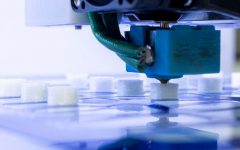How Bioprocess engineering can help to fight the pandemic through vaccine development?
July 23, 2020 2021-12-20 6:34How Bioprocess engineering can help to fight the pandemic through vaccine development?

How Bioprocess engineering can help to fight the pandemic through vaccine development?
If you have not heard or been impacted by the COVID-19 pandemic, then you are not a resident of planet earth!
Coronavirus disease 2019 (COVID-19) is caused by severe acute respiratory syndrome (SARS) coronavirus 2 (SARS-CoV-2) infection. The disease has been reported in over 185 countries. In March 2020, the World Health Organization declared COVID-19 a pandemic. As of June 26, 2020, the SARS‑CoV‑2 virus has infected 9.8 million people globally and caused over 0.49 million deaths, which translates to a 5% death rate. A 5% death rate is highly undesirable in any population and implies the pandemic is a serious threat to global health! Alarmingly, there is no prevention strategy (as in administering a vaccine) or a cure (as in administering an anti-viral drug) for treating the disease. Currently, the spread of the disease is managed primarily using non‑pharmaceutical strategies: strict quarantine protocols, patient‑isolation measures, and state-wide lockdowns as well as recommended personal hygiene practices including social distancing, frequent hand washing and sanitization, and the use of face-covering in public areas. In India and the US, the health authorities have granted emergency use authorization for Remdesivir, an investigational antiviral drug manufactured by Gilead Sciences, to treat hospitalized patients with severe COVID-19 disease. The pandemic has also impacted world trade and employment opportunities. According to the World Trade Organization, world trade is expected to fall by between 13% and 32% in 2020 as the pandemic disrupts normal economic activity and life around the world. In the US, the world’s largest economy, the unemployment rate in May 2020 was 13%. That being said, arguably, the COVID-19 pandemic is unlike any global health crisis the world has experienced in the last 100 years since the emergence of the Spanish Influenza of the early 20th century.
To overcome this pandemic, the scientific community must deliver a vaccine to prevent infection and/or anti-viral drug(s) to treat infected patients. Thankfully, several groups have successfully sequenced and published the SARS-CoV-2 virus genome since the virus emerged in late 2019. In time, this milestone will facilitate identifying and understanding the molecular aspects of SARS-CoV biology and should eventually lead to the discovery of potential viral-specific molecular targets for the development of virus-specific vaccine and anti-viral drug candidates. Such candidates which include recombinant proteins, peptides, and viral fragments, are considered as biological products. Before a biological product is approved (or licensed) for patient use by a health authority, the product must first be thoroughly evaluated through clinical trials for potency, purity, safety to the patient, and efficacy against the SARS-CoV-2 virus. Typically, a process is developed not only to manufacture a biological product to support the clinical trials but also in readiness to meet commercial demand post‑licensure. The technologies of choice to produce biological products are fermentation technology and mammalian cell culture bioprocessing.
Bioprocessing involves the use of microbial cell substrates (fermentation technology) or mammalian cell substrates (cell culture bioprocessing) at a commercial (large) scale to produce a product useful to humans and animals. Bioprocessing can be applied to manufacture the vaccine or drug candidates of consistent quality against SAR-CoV-2. Beginning at laboratory-scale, the gene sequence encoding a vaccine or anti-viral drug candidate can be cloned into a suitable microbial or mammalian cell line and the recombinant cell line is cultured in suitably formulated growth and production media. Production conditions such as the amount of oxygen, growth temperature, and pH can be controlled in small-scale fermenters (fermentation technology) or small-scale bioreactors (cell culture bioprocessing) to optimize cell growth, product expression and product quality. Once the process conditions are well-defined at laboratory-scale, the process is scaled-up to pilot-scale by using larger fermenters or bioreactors to fine‑tune process conditions and ensure consistent product quality. Finally, the process is scaled-up from pilot-scale to commercial-scale to produce the biological product in commercial quantities. Both the pilot-scale and commercial-scale manufacturing processes can be used to supply clinical trial material.
In summary, a manufacturing process based on fermentation technology or cell culture bioprocessing can be implemented to produce commercial quantities of a biological product of consistent quality to support the fight against the COVID-19 pandemic once a suitable vaccine or drug candidate is discovered against SARS-CoV-2.
References:
https://www.ncbi.nlm.nih.gov/research/coronavirus/publication/32582302
https://inflammregen.biomedcentral.com/articles/10.1186/s41232-020-00120-
https://www.ncbi.nlm.nih.gov/pmc/articles/PMC1087510/
https://www.bls.gov/news.release/pdf/empsit.pdf
https://www.wto.org/english/news_e/pres20_e/pr855_e.htm
Profile:

Dr Eddie Crabbe has more than 12 years of experience in aerobic and anaerobic fermentation process development for recombinant protein and bioenergy production, technology transfer, and manufacturing support. Currently, he is working in Avid Bioservices in Tustin, California in Process Development as a Senior Director. Prior to this, he has worked at Allergan in Irvine, California as a Senior Scientist in Biologics Development Process Sciences.
Eddie has a Ph.D. in Food Science and Technology (Microbial Biotechnology option) from Kyushu University, Fukuoka, Japan and holds a BS (honors) and an MPhil in Biochemistry from the University of Ghana. He has also undertaken post-doctoral studies in methane steam reforming to hydrogen Tonen General Corporation (an Exxon Mobil affiliate in Saitama, Japan) and lysine production by a thermo-tolerant bacillus species from methanol in Professor Mike Flickinger’s Lab in the Biotechnology Institute at the University of Minnesota, St. Paul.
He is an Adjunct Professor for Biocon KGI Certificate Program in Biosciences where he teaches Fermentation Science and Technology to the students. He is one of the favorite professors of the students.







